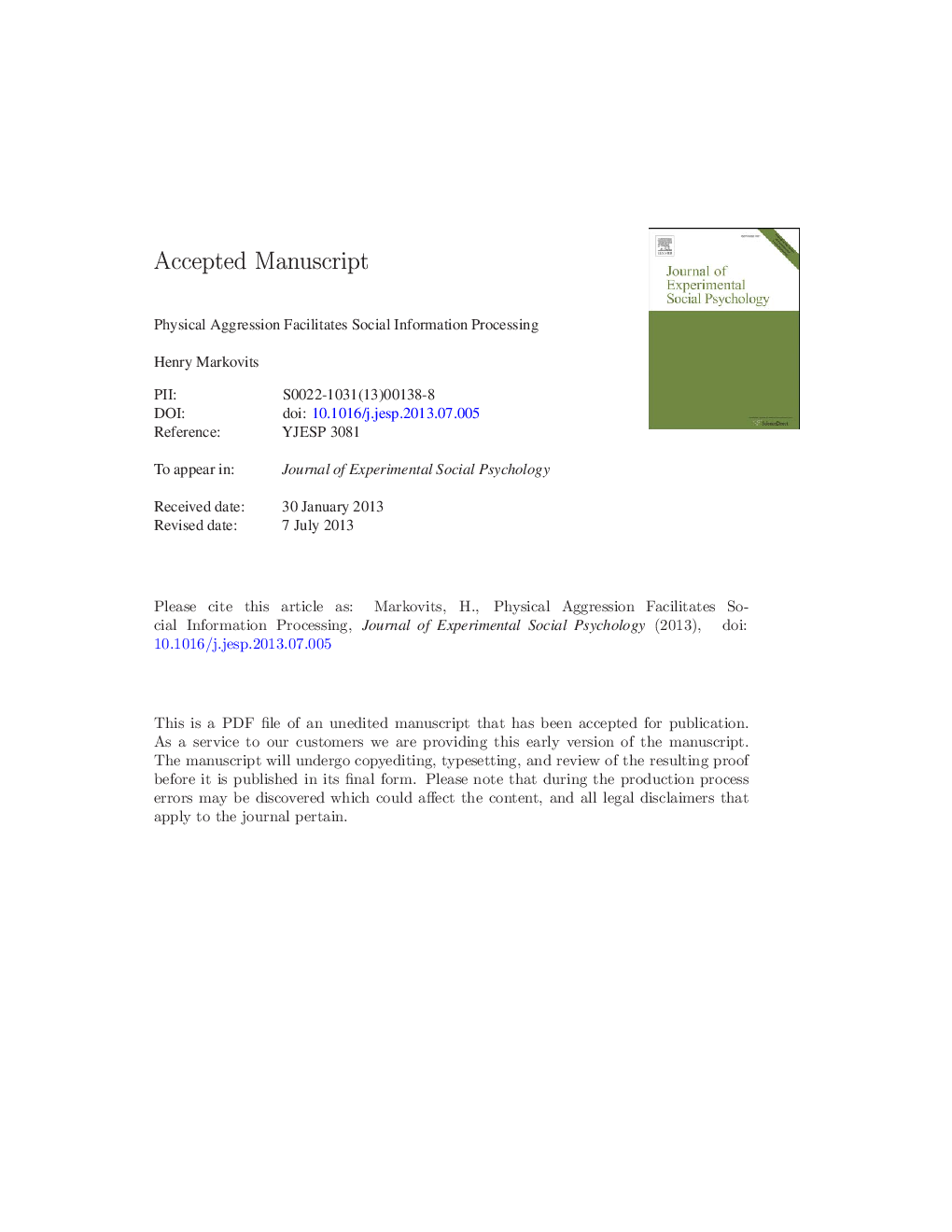| Article ID | Journal | Published Year | Pages | File Type |
|---|---|---|---|---|
| 10468543 | Journal of Experimental Social Psychology | 2013 | 19 Pages |
Abstract
Physical aggression appears to have a much stronger effect on behavior than its overt frequency of occurrence would suggest. Studies examining effects of observing aggressive behavior and others looking at cognitive differences related to aggressive behavior suggest that physical aggression might be processed preferentially by the cognitive system. In order to examine this hypothesis, adult participants were given a social cue learning task. Study 1 presented three conditions which were identical except for the description of one potential outcome. Participants learned the cue more often when this outcome involved physical aggression (hit) compared to non-physical aggression (steal) or being friendly. Study 2 showed that the specific nature of the cue had no effect on success rates. Study 3 compared unusual outcomes involving aggression (being hit with a suitcase) and non-aggression (dancing). Results show that people were more accurate with the former. These results provide evidence that physical aggression is processed more efficiently than other forms of social interaction and gives a cognitive basis for the specific impact of physical aggression on behavior.
Related Topics
Life Sciences
Neuroscience
Behavioral Neuroscience
Authors
Henry Markovits,
